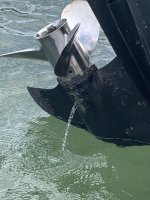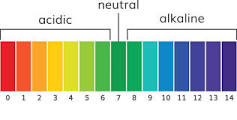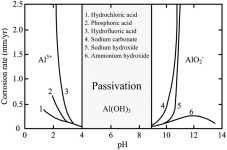Our 2004 DF140 has corrosion attacking the lower unit. We just recently discovered this hole with water draining out when the engine is tilted. We’re on Lake George in NY and the water while being drinking quality may be slightly acidic. Edit- just read ph ranges between 7.5-8.
I recently read about different alloys for anodes and would like to know if something is better for this lake water over salt water. We have never changed the anodes in 20 years so maybe it’s just that. Do they develop an oxide coating that stops them from working?
Also, can anyone speak to what’s behind this hole? If I can stop the bleeding with new anodes, could this be a JB Weld fix?
Thanks in advance for any help, C
I recently read about different alloys for anodes and would like to know if something is better for this lake water over salt water. We have never changed the anodes in 20 years so maybe it’s just that. Do they develop an oxide coating that stops them from working?
Also, can anyone speak to what’s behind this hole? If I can stop the bleeding with new anodes, could this be a JB Weld fix?
Thanks in advance for any help, C
Attachments
Last edited:






















